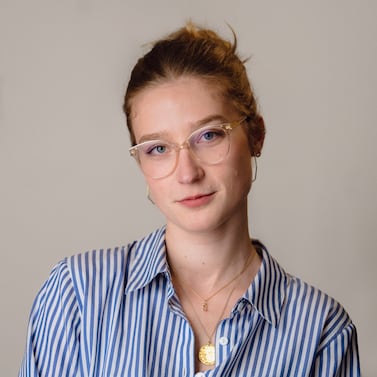
The Business of Fashion
Agenda-setting intelligence, analysis and advice for the global fashion community.

Agenda-setting intelligence, analysis and advice for the global fashion community.

Generative artificial intelligence, or gen AI, is leading the charge of next-gen technologies shaping industries and their workplaces. Already, gen AI can be leveraged across the value chain: from product design and content creation across campaign images, marketing text, website code and videos, to online consumer experiences through virtual styling and digital clienteling. Meanwhile, conventional AI can be leveraged to forecast demand for buying and merchandising teams or gather insights for store associates and retail teams.
The management consultancy firm McKinsey & Company estimates that gen AI could add up to $275 billion of economic potential to apparel, fashion and luxury sectors’ operating profits. It estimates the technology could increase the productivity of the marketing function with a value between 5 and 15 percent of total marketing spending, while as much as one-fourth of gen AI’s potential value in fashion may be driven by use cases in design and product development.
As a result, 73 percent of fashion executives expect to prioritise gen AI this year, as cited in BoF and McKinsey’s State of Fashion 2024, while 62 percent of fashion businesses already use gen AI in the workplace.
However, only 4 percent claim to use AI “regularly”, while 21 percent use it “occasionally” and 37 percent “experimentally”. The most popular use cases are focused around creative experimentation — in marketing, creating copy or visual content, or to assist in design and product development. Use cases in stores and supply chain operations are still nascent despite their potential.
ADVERTISEMENT
Crucially, the rate of change executives seek in their business by integrating gen AI and other technologies is out of step with existing skill sets. The State of Fashion report finds that many will face a talent gap, given that just 5 percent of the surveyed executives said they are ready to make best use of the technology.
To accommodate next-gen technologies, job requirements across different functions will need to change — in some cases, they already have. Many job specifications in product development require an understanding of computer-aided design (CAD) and 3D modelling software. Soon, fashion professionals can expect requests for skill sets or specialisms in gen AI programmes like Midjourney, ChatGPT and their competitors.
What’s more, leaders and HR teams need to consider how they can foster the right workplace culture and technical support to optimise the use of next-gen tools.
This BoF Careers white paper explores how fashion businesses can approach integrating gen AI into their workplace, the core skill sets needed in a digitally competent workforce, and the pastoral requirements to effectively support an employee cohort reimagining its day-to-day practices for long-term success.
Featuring actionable insights and analysis from global experts:
Rhianna Cohen is the creative director for the creative strategy studio Mørning, working with global brands such as Nike, Calvin Klein, Coty, Meta and more. Cohen has worked in strategy at The Future Laboratory, Protein Agency and Dazed Media and has led projects including Dazed’s The Era of Monomass and Mørning’s Ø, an experimental technology project reframing the relationship between human and machine.
Jessica Couch is a retail technology expert who has worked with companies like Nordstrom and Amazon, focusing on bridging gaps and promoting equity, especially for women. Leading Looks.Ai, a peer-to-peer shopping platform, her work has featured in Yahoo News, Forbes, Essence and Afro Tech. Couch is a board member of the Carnell Couch Foundation, worked as an advisor for MIT’s Kinetic Program and was a member of the NC State College of Textiles Dean’s Young Alumni Council.
Cyril Foiret is founder of Maison Meta, a generative AI agency that offers services in creative direction, consultancy and training. Its clients include Moncler, Zara, Revolve, H&M, L’Oréal, Victoria’s Secret, Mugler, Pangaia, Pandora, Unilever and WPP. Maison Meta also founded AI Fashion Week. Foiret was named in the Vogue Business Top 100 Innovators in 2023.
ADVERTISEMENT
Holger Harreis is a senior partner at McKinsey & Company and co-leader of McKinsey’s Data Transformation Practice globally. He works with clients on solving critical business issues, employing data and AI to refine customer experiences and journeys, optimise business opportunities, streamline supply chain and logistics operations and strengthen risk management and resilience. Harreis contributed to The Business of Fashion and McKinsey’s The State of Fashion 2024 report and co-authored the McKinsey 2023 report: Generative AI: Unlocking the future of fashion.
Carl-Axel Wahlström is the founder and creative director of Copy Laboratory, a creative agency specialising in AI imagery and brand visuals. Wahlström also launched the first AI fashion magazine, Copy Magazine, in 2023. A senior creative director and consultant with over 20 years of experience, Wahlström has also held senior art director positions at H&M and & Other Stories.
Dr. Katia Walsh joined Harvard Business School as its inaugural chief digital officer in 2023, overseeing the growth of a technology innovation function that builds and scales world- leading capabilities in digital and AI products for both educational experience enhancement and new business opportunities. Prior to HBS, Dr. Walsh was the chief strategy and AI officer at Levi Strauss & Co. and chief data and AI officer at Vodafone Group. She received Global AI Ambassador 2023 and Forbes’ Women Defining the 21st Century AI Movement recognitions, among other data and AI leadership awards.
After generative AI’s breakout year in 2023, The State of Fashion 2024 examines emerging use cases across creative industries, including fashion.
From ChatGPT to Midjourney to Runway, the emerging technology is already showing why it could be one of the most consequential in decades for the fashion industry. Early adopters and experts unpack the opportunities and challenges of putting gen AI to use to design products, create campaigns and other content, and better connect with customers.
Many fashion students, far from being unmitigated technophiles, are still distrusting of the technology, while educators at schools from London’s Central Saint Martin to Parsons in New York are navigating how best to approach it.

Sophie Soar is the Commercial Features Editor at The Business of Fashion. She is based in London and oversees BoF’s careers advice and written content partnerships at BoF.
Discover the most exciting career opportunities now available on BoF Careers — including jobs from Tapestry, Alexander McQueen and Toteme.
A US regulator has banned most uses of the clauses, which started as a way for fashion companies to prevent senior executives from walking off with trade secrets, but have become a standard retention tool.
Check out this week’s new partners and openings on BoF Careers, the global marketplace for fashion talent.
BoF Careers provides essential sector insights for fashion designers this month, to help you decode fashion’s creative and commercial landscape.